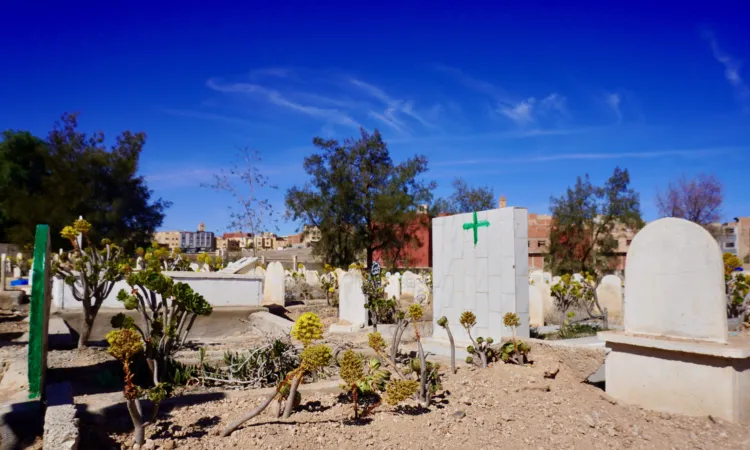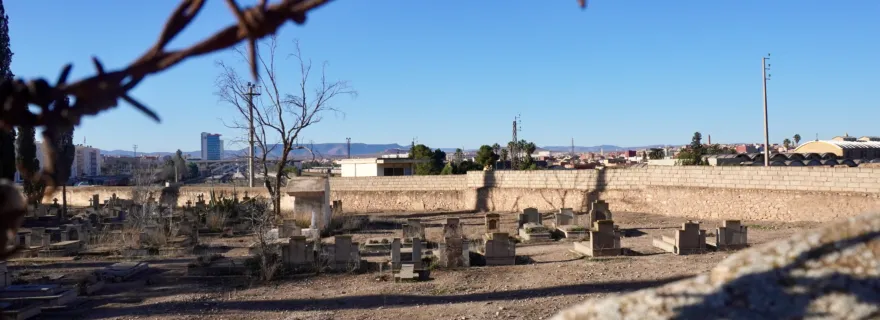Entering the fieldwork site
You’ve prepared for months—almost a year. Now the moment is here: you’re on your way to the fieldwork site. Excited? Nervous? Maybe a bit of both?
Familiar ground, new direction
Instead of the summer of 2020, I’m setting foot in the field in March 2022. It feels good. Familiar, yet full of new possibilities. I’ve done fieldwork in Morocco before, but never in Oujda, and never on this topic: death and burial. My student assistant and I board the night train from Rabat, heading east toward the Algerian border. There’s something special about watching a new landscape unfold at dawn—when the sun is just returning—knowing you’re almost there.
Arriving at the border
And yet, the excitement is also tempered by the Russian invasion of Ukraine just a week ago, a stark reminder of the world's fragility. I’m fully aware that while we’re heading toward the border from the west, there are people risking their lives trying to cross it from the other side—a powerful, if sobering, reflection of the title of our research project.
And as we sit, hungry, having breakfast in a bar called Marhaba—“welcome” in Arabic—the irony weighs heavily. The key informant we are about to meet had told us about the migrants they buried just a few weeks earlier. I had seen the video of that burial online; it’s what led me to contact him. They died of hunger and thirst.



